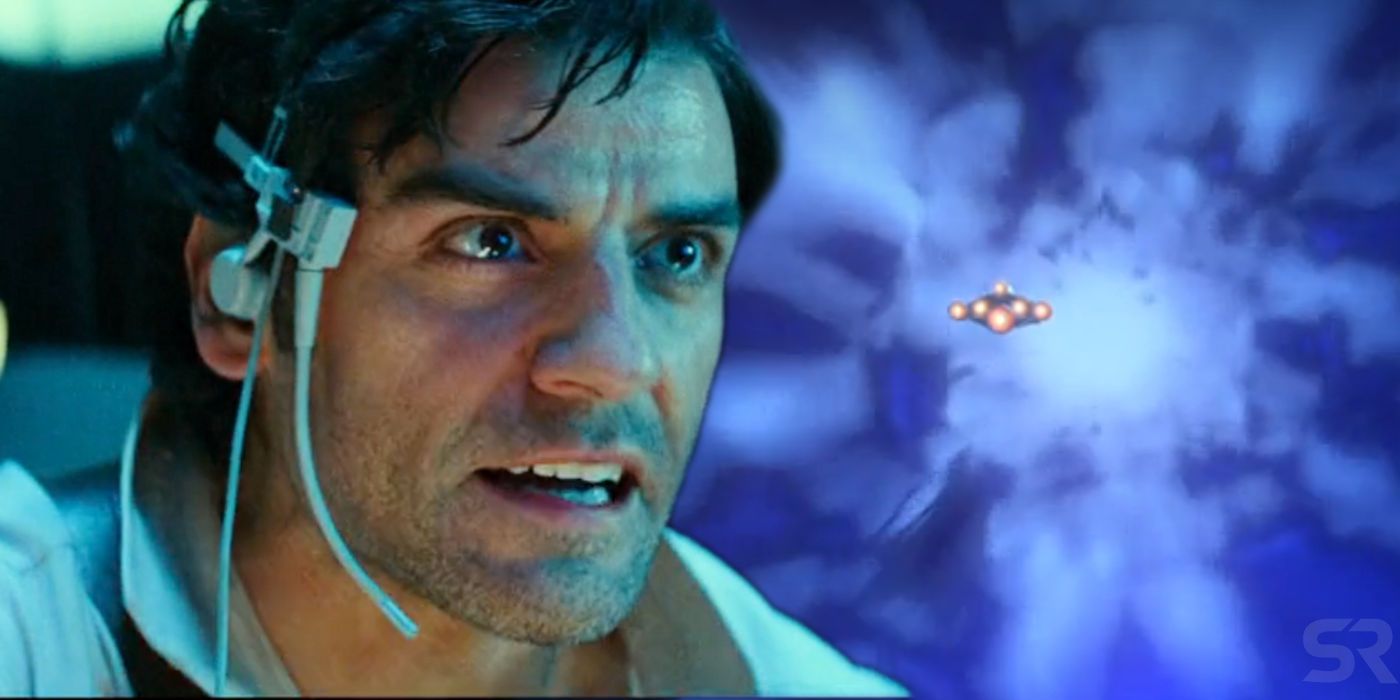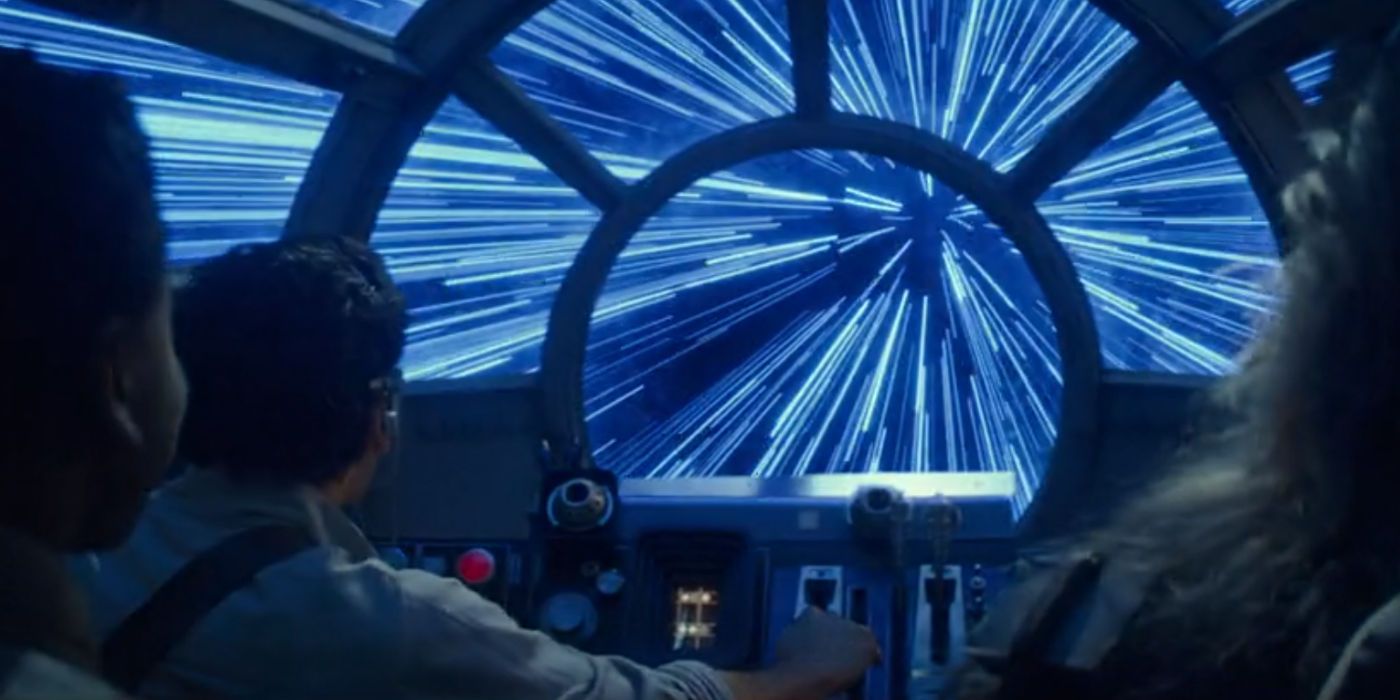Disney Star Wars Keeps Breaking Hyperspace Logic | Screen Rant

Star Wars: The Clone Wars season 7, episode 6, "Deal No Deal" is yet another example of the Star Wars franchise confusing viewers with its depiction of hyperspace travel. The Star Wars explanation of hyperspace is a ship entering a different dimension to travel vast distances, akin to a wormhole. While the famous bending of light and distant stars signifies a ship going into hyperspace, there is no evidence that this means the ship is actually speeding up to "enter" hyperspace. According to the canonical definition, the visual warping of space simply means that the ship is entering the hyperspace dimension, not astronomically increasing its speed.
Clone Wars season 7, episode 6 features Ahsoka and her friends, Trace and Rafa Martez, making the Kessel run to the planet Oba Diah, but it began with them leaving Coruscant on the Silver Angel, a ship recently constructed by Trace. This mission sees them go through hyperspace more than once, and while Trace dumps the spice on their way to Oba Diah, forcing the group to attempt to double-cross the Pykes, the real mystery regarding hyperspace travel happens early on.
Related: Star Wars: Ahsoka Breaks a Major Jedi Rule in The Clone Wars
Towards the beginning of the episode, the Silver Angel enters hyperspace and experience heavy turbulence. Trace apologizes and says that she "left the airbrakes on." She flipped a switch and then the ship starting flying smoothly. This doesn't make sense from either a scientific perspective or a Star Wars perspective; they're flying through space, a vacuum in which there's no air and obviously unable to create air resistance via the "air brakes." This inconsistency is one of several examples found in the Disney Star Wars sequel trilogy and falls into Clone Wars as well.

In Star Wars: The Rise of Skywalker, Poe Dameron uses "lightspeed skipping" to evade chasing TIE fighters. In doing this, Poe makes multiple jumps to hyperspace, coming out in different planets each time, to throw the fighters off his trail. Han Solo warned about making quick, blind jumps into hyperspace in A New Hope, claiming that you could accidentally "fly through a star." Poe's perfect jumps were either due to random luck or they were plotted and he was lucky enough not to collide with any objects. The scene looks fantastic, but forces many Star Wars fans to question how hyperspace actually works.
Another example of this hyperspace inconsistency can be found towards the end of Star Wars: The Last Jedi. Admiral Holdo saves the fleeing Resistance ships by aiming her ship at the First Order cruisers and charting a course right through the fleet. This sequence was inspired by Han Solo's warning about flying though a star in A New Hope, but it seemingly contradicts the Star Wars definition for hyperspace. Given that hyperspace is a ship entering another dimension, how did Holdo's ship slice through the First Order fleet? It's possible that the "wake" of such a big ship entering hyperspace could slice through a nearby fleet, but that would still rely on the ship drastically speeding up before entering the dimension, which is supposedly not the case.
But before that, Star Wars: The Force Awakens had a few hyperspace inconsistencies of its own, beginning with the Millennium Falcon entering hyperspace from inside a cargo ship. Given what viewers saw in The Last Jedi, why didn't the Falcon destroy the cargo ship with its "wake" when it entered hyperspace? Another example is when the group lands on Starkiller Base. Han says the only way to penetrate the planet's shields is to enter the atmosphere at lightspeed. As soon as they come out of hyperspace, they're only a few hundred feet off the ground and Han is able to pull up immediately and land. The logic of exiting hyperspace that close to the ground, on a planet no less, seems to even defy Star Wars' science, with something like that never taking place in the original trilogy or prequels. Overall it seems Disney is keen on pushing the understood boundaries of hyperspace in Star Wars, and that includes with Clone Wars.
from ScreenRant - Feed https://ift.tt/2X59peI
via Whole story

Post a Comment